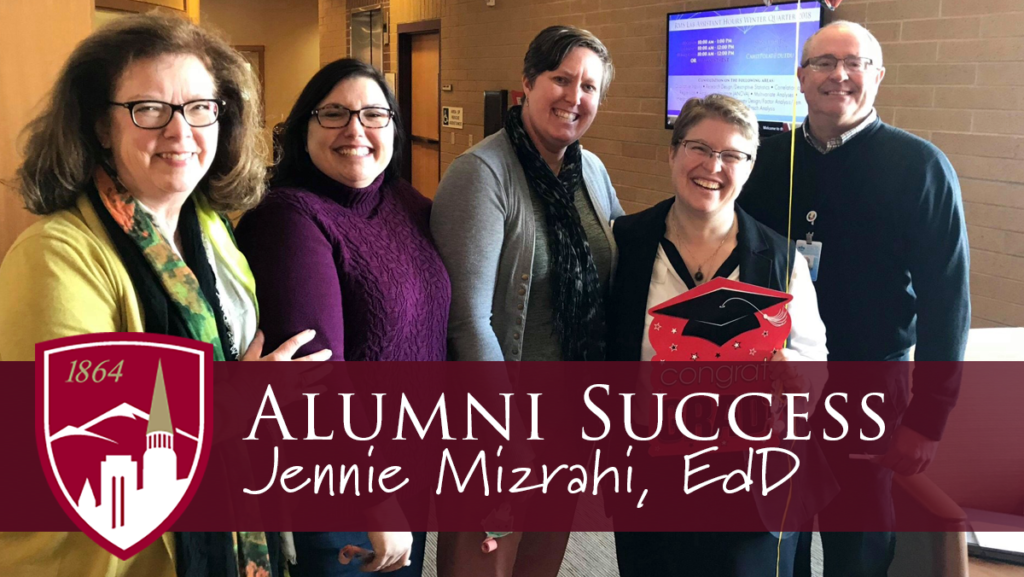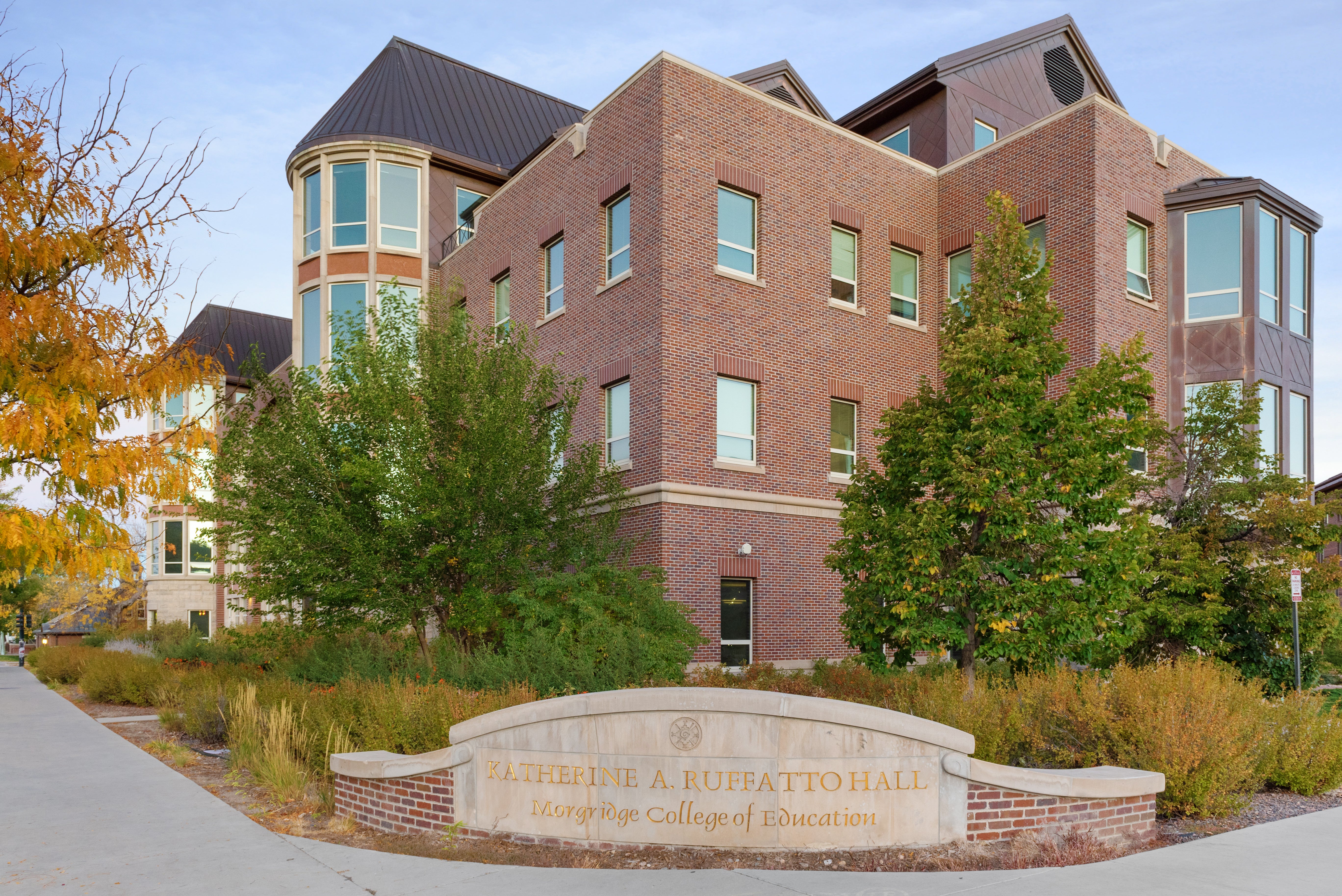Graduate Receives Dissertation Award in Curriculum
Morgridge College of Education graduate Dr. Jennie Mizrahi (EdD ’18) has been awarded the John Laska Dissertation Award in Curriculum from the American Association of Teaching and Curriculum (AATC). According to the AATC, each year it recognizes two outstanding dissertations in teaching and curriculum that best represent its mission and founder, Dr. John Laska. Laska earned his doctoral degree from Teachers College and was a professor in the Department of Curriculum and Instruction at The University of Texas at Austin from 1967 until his death in 1995.
Mizrahi’s award-winning dissertation, Underachievement of Creatively Gifted High School Students, tackles why under achievement is a common issue with gifted students, specifically creatively gifted students who may be at greater risk because of personality traits, lack of challenge in strength areas, a mismatch between school environment and student needs, low status associated with creative achievements and behaviors in the school system, and other factors.
“I am humbled by the honor,” Mizrahi said, “and hope that this will give me an opportunity to help raise awareness of the issues faced by creative underachievers so that we as educators may better meet their needs.”
Her research focused on “…six creatively gifted, underachieving high school students from an urban-cluster area in the western United States. A hermeneutic phenomenological approach was used to gather data in the form of interviews with underachieving, creatively gifted students, their parents, and teachers; observation of classrooms; and creative artifacts to uncover the essence of the experience of underachievement for these stakeholders. These data groups were then compared to each other and existing literature to help generate recommendations for changes in school programming and practice for helping this student population.”
According to Dr. Norma Hafenstein, Daniel L. Ritchie Endowed Chair in Gifted Education at the University of Denver and Mizrahi’s academic advisor, Mizrahi’s conclusions “focus and elaborate on the themes of emotionality, learning versus achievement, shaping the student self, motivation and power, and student creativity in crises.”
Mizrahi’s results saw creative high school students, their parents, and their teachers experience underachievement in many ways. According to her, several major themes emerged; the first was the interaction of creativity and underachievement, which included differences in priorities and contradictory goals for various participants in various contexts. The second was motivation. Participants tended to discount or undervalue intrinsic motivation for creative tasks and experienced lack of motivation for school tasks (often seen as “hoop jumping”) as a character flaw on the part of the student, who was often viewed as having a poor work ethic. Participants had little understanding and no tools for increasing motivation. The third theme was the student self. All three sets of participants had similar perceptions of the student self, but the conflict between student needs and student perceived self, and the values and expectations at school and at home placed students sense of self under threat. The fourth theme was power. While a sense of student autonomy is key for creativity and academic success, when students underachieved, parents and teachers tended to exert types of power which undermined student autonomy, sometimes triggering reactance (rebellion against the attempted power influence) in an attempt to protect student autonomy and sense of self.
Mizrahi recommended separate support groups be formed for parents and students, a review of grading policy and goals at the school site, and the formation of a gifted and talented program at the site to help advocate for students and train teachers in differentiated curriculum and the needs of gifted students. The gifted and talented program would also provide extension and exploration opportunities for students.
“Dr. Mizrahi was an exceptional graduate student, a leader in her cohort and a meticulous and thorough researcher,” Hafenstein added. “Simultaneously, her passion for the arts and for a special population of gifted students created the context in which this extraordinary project occurred.”
Part of her award includes a one-year membership to AATC, a conference fee waiver to the annual AATC meeting where the award will be presented, and an invitation to present the dissertation at an AATC conference session. Mizrahi will accept her award and present in person at the 25th AATC annual meeting in Dallas, Texas in October 2018.



